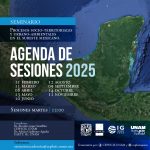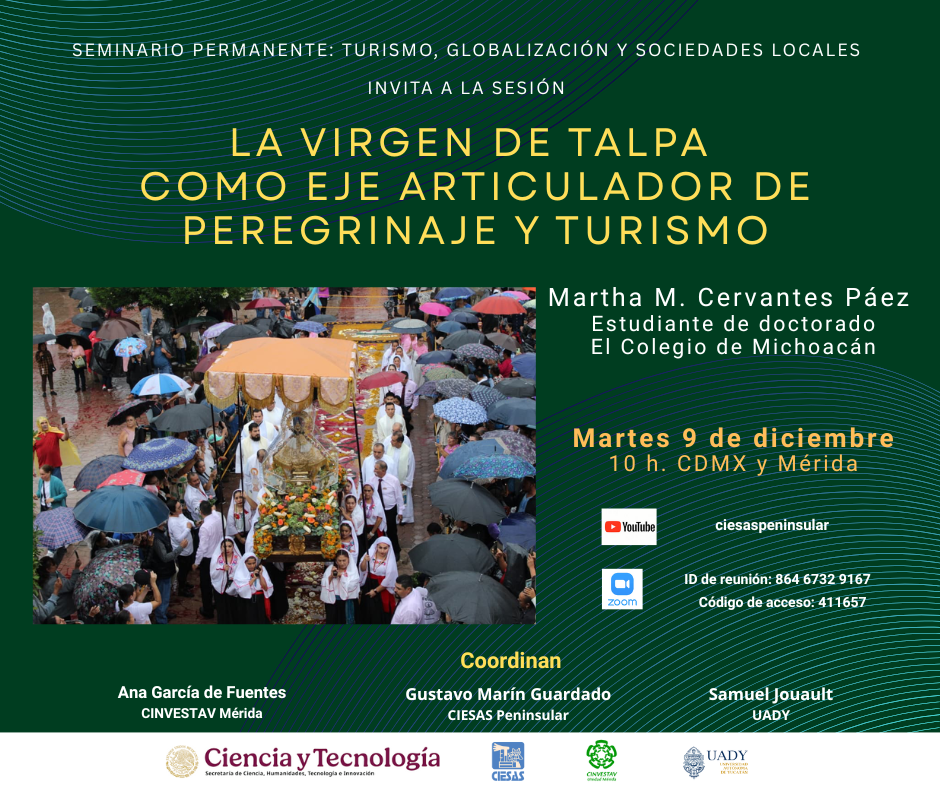The politics of data in Latin America: Towards a terrestrial Internet
Tapuya: Latin American Science, Technology and Society
CALL FOR ARTICLES
The politics of data in Latin America: Towards a terrestrial Internet
Marcela Suárez (FU Berlin), Jenny Guerra González (UNAM)
Data extractivism, algorithmic governance, and corporate control of Internet business are part of the regime of digital capitalism. Digital technologies are producing a social space that is far from immaterial, neutral and abstract. As Latour (2010) points out, the greater the digitality, the greater the materiality. In this issue we argue that the Internet is terrestrial because the effects of its corporate and governmental control materialize in specific spaces; for example: the maritime space where underground cables pass; the aerial space of the signals from satellites and antennas, as well as those spaces rich in the raw materials and natural and human resources necessary to sustain the Internet. These spaces are not dissociated from diverse forms of human and non-human forms of life that cohabit it and embody the effects of disputes over data.
This cluster aims to account for the impact on the territories and diverse forms of life from our growing digital society. The guiding question of the cluster is: what are the dynamics of the disputed spaces that support the Internet and what are their effects on territories and their various ways of life in Latin America? Through Latour’s concept of network and a broad sense of politics, we want to investigate the Internet as a very material network. We take as initial inspiration Latour’s ( 2018, 2019; 2020) inclination in recent years towards a terrestrial politics— in particular, his proposal to «land the politics of humans on earth, which would allow us to reconnect to the territory in which we live and on which we depend”. Based on this proposal, we understand politics as the attempt to destabilize in order to explore forms of dispersion in which controversies emerge and agencies and power relations become visible.
Data centres will continue to multiply in the coming years in Latin America to sustain our digital society and will require great amounts of resources such as energy and water; materials and metals for devices, cables, antennas; and human resources that are intensively needed, such as Facebook moderators or workers without social benefits for various applications such as Uber. Likewise, electronic waste is more and more a problem in the region (Gil, 2015). Such infrastructure projects and forms of resource extraction are likely to result in arduous social conflicts between companies, governments and social collectives, with strong impacts on political and social inequalities in the region (Svampa, 2019; Ulloa, 2017).
Likewise, disputes over data control can also turn to conflicts over bodies and territories. Disputes over algorithmic governance in the Covid pandemic in Latin America materialized in real political struggles that intend to subvert and destabilize political orders but also reinforce authorities’ practices of criminalization and abuse of power. The materiality of the politics of data can render visible on the one hand the surveillance and control of bodies and, on the other, the impacts of such disputes on social collectives. Although it is true that technologies have helped to articulate social collectives for political transformation with a common objective, for example to defend territories (Erpel, 2018), it is also true that these same devices have been used to monitor, trace and intimidate activists leading to a process of transformation in Latin America.
For these reasons, we would like to read Latour’s proposal for a terrestrial politics in light of the diverse theoretical and political traditions in Latin American, for example, feminisms (Cruz, Vázquez, Ruales, Bayón, & García-Torres, 2017; Espinosa, Gómez, & Ochoa, 2014; La_jes, 2018) that have historically created fully down-to-earth resistance strategies by proposing the category of bodies- territories. We argue that bringing the politics of the humans down to earth cannot just mean focusing on scientific knowledge and the disputes over land. We believe that humans must be reassembled from a materialistic critical view that accounts for the hierarchies of the human category and, therefore, the embodiment of the consequences of corporate disputes over data, surveillance and control of the bodies, but also for the fight over the natural resources that support the Internet (water, energy, metals, minerals and more). In this vein, we welcome papers that contribute with interdisciplinary perspectives by critically exploring, connecting, testing, o putting into dialogue the terrestrial politics with other theoretical contributions in Latin America. We welcome case studies that give an account, for example, of the creation of data centers and the conflicts that these engender; the extraction of metals and electronic pollution — as well as articles that go beyond the Internet as an abstract and neutral space and, rather, politicize it by tracing its connections with multiple spatialities in the disputed territories, rendering visible social (dis)articulations. Or works that connect resistance processes in specific territories in Latin America with global circuits for the extraction of water, minerals and metal resources, electronic waste and pollution. We believe that the terrestrial politics, bodies-territories, terrestrial Internet or categories alike can help us to discuss the politics of data in Latin America. From this perspective, we extend an invitation for abstracts on the following topics:
The politics of data in the (post-) pandemic era in Latin America
- Algorithmic governance of the pandemic and its political disputes
- Technological controversies about the traceability and behavior of the Covid-19 virus in Latin America
- Corporate and government alliances for the extraction of data
- Surveillance, tracking and facial recognition technologies
Politicizing the infrastructures that sustain the Internet
- Data centers and intensive use of resources: electricity and water
- Antennas (5G) and their effects on territories and bodies
Extractivism of data, power and territories
- Politicization of data beyond its commercial value
- Alliances among corporations and governments in energy, water mining sectors linked to digital technologies
- Pollution of territories as a result of technological activities
- Violence by megaprojects connected with the regime of digital capitalism
Bodies-territories and control
- Impacts to bodies-territories
- Digital day-laborers and job insecurity
- Digital violence
Society 5.0
- Digital citizenship and democracy
- National science, technology and innovation plans and their alignment with the 2030 Agenda for Sustainable Development: inclusion and resilience
- Posthumanism, gender and decolonial thought
Please send your abstract to the guest editors marcela.suarez@fu-berlin.de and jenny@iibi.unam.mx by October 15, 2020. Submitted abstracts should not exceed 350 words excluding references and should include objective, method and expected results. Please also let us know to which topic and subtopic you would like to contribute with your manuscript.
Activity Deadline
- Call for abstracts: 15 October 2020
- Decision on abstracts: 15 November 2020
- First drafts: 1 March 2020
- Editors comments to authors: 15 April 2020
- Revised drafts for external review: 10 June 2021
- Comments Returned: 20 September 2021
- Final version to editors: 15 December 2021
- Revision and final submission: 15 January 2022
Te puede interesar
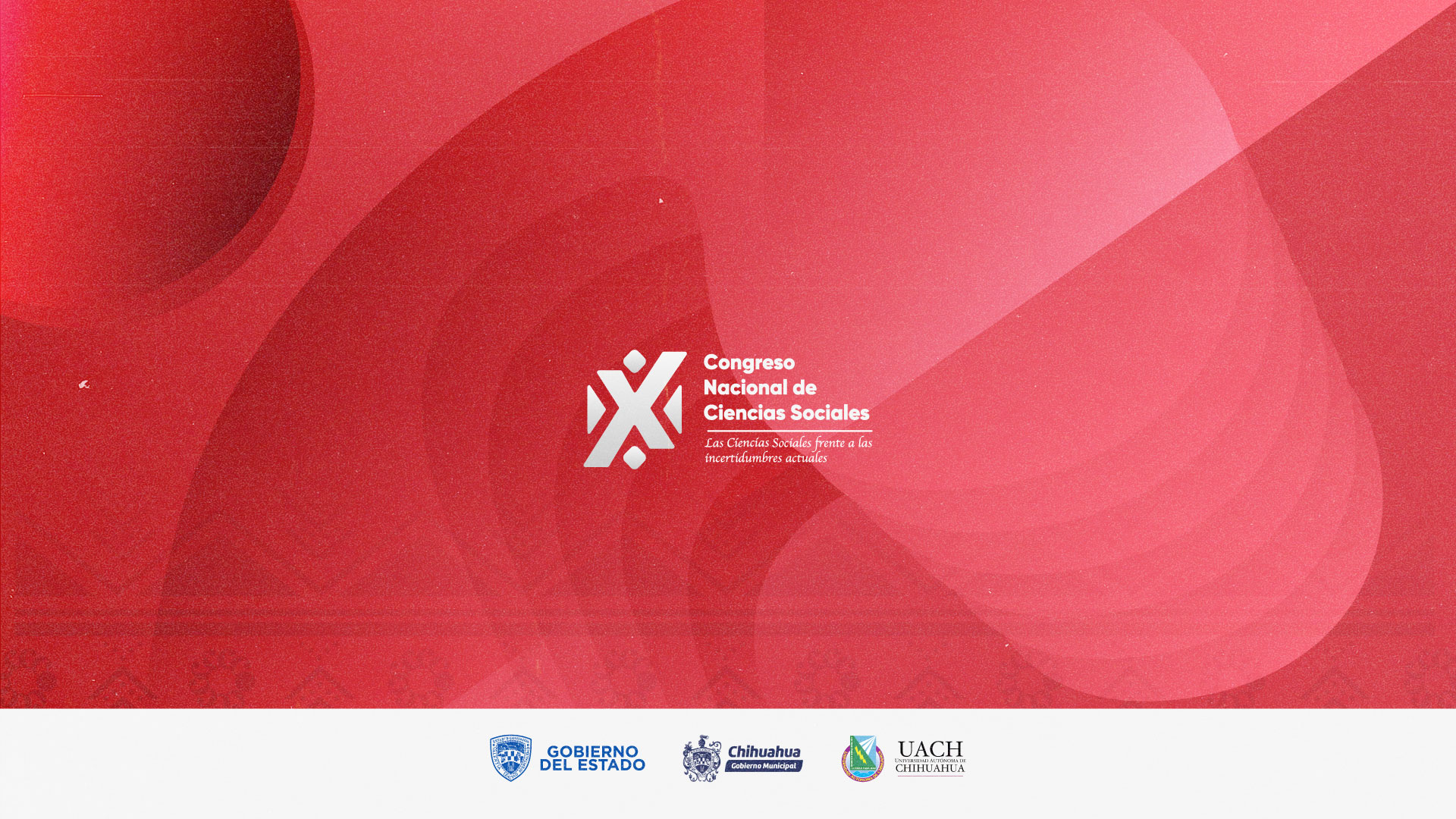
Convocatoria para presentación de libros
Laura Gutiérrez - Dic 10, 2025FERIA DEL LIBRO X CONGRESO NACIONAL DE CIENCIAS SOCIALES “Las Ciencias Sociales frente a las incertidumbres actuales” INVITACIÓN PRESENTACIÓN DE…

Convocatoria Feria del libro
Laura Gutiérrez - Dic 03, 2025FERIA DEL LIBRO X CONGRESO NACIONAL DE CIENCIAS SOCIALES “Las Ciencias Sociales frente a las incertidumbres actuales” INVITACIÓN Información general…

Memorias del IX Congreso Nacional de Ciencias Sociales
Roberto Holguín Carrillo - Jul 02, 2025IX Congreso Nacional de Ciencias Sociales Las ciencias sociales y los retos para la democracia mexicana. Realizado en el Instituto…
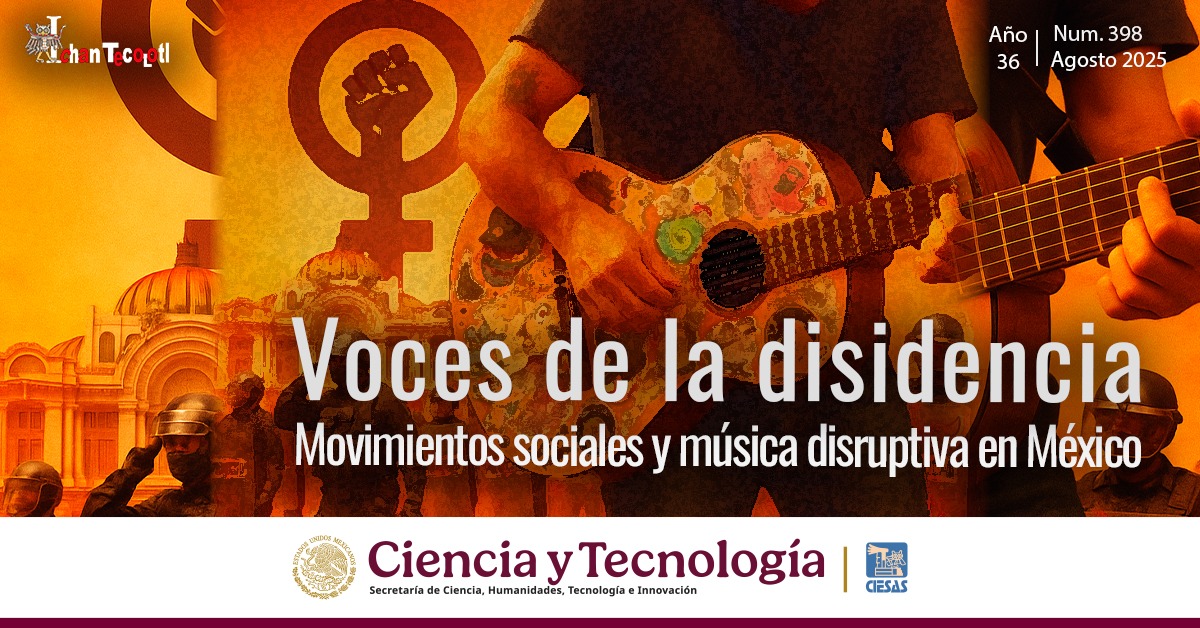
Ichan Tecolotl, núm. 398
Laura Gutiérrez - Dic 10, 2025Ichan Tecolotl Año 36, Número 398 (agosto 2025) Voces de la disidencia. Movimientos sociales y música disruptiva en México Ver…
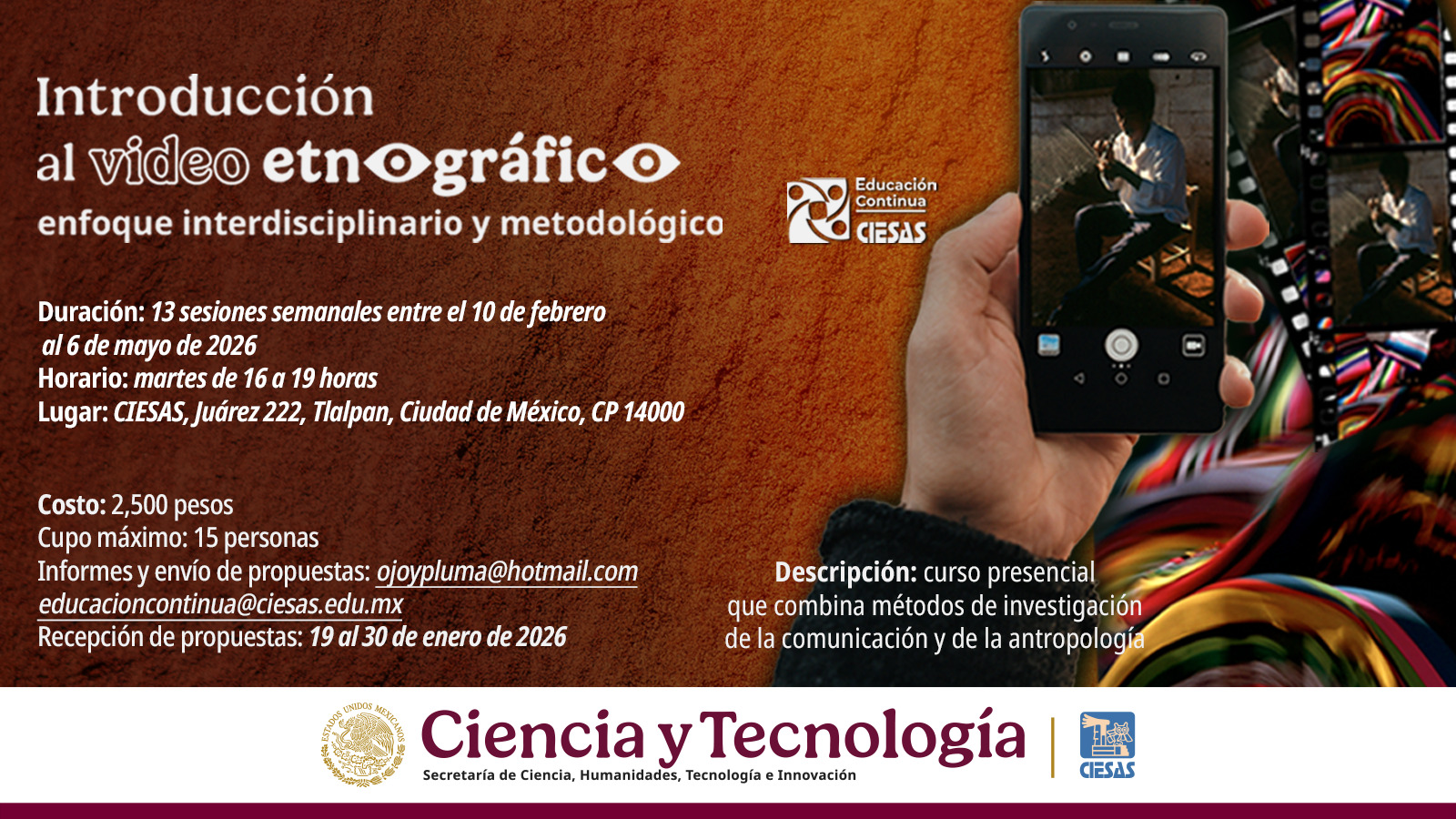
Curso Introducción al video etnográfico
Laura Gutiérrez - Dic 10, 2025Curso Introducción al video etnográfico 1. Objetivo Familiarizar a estudiantes o profesionales de la antropología y disciplinas afines con herramientas…







